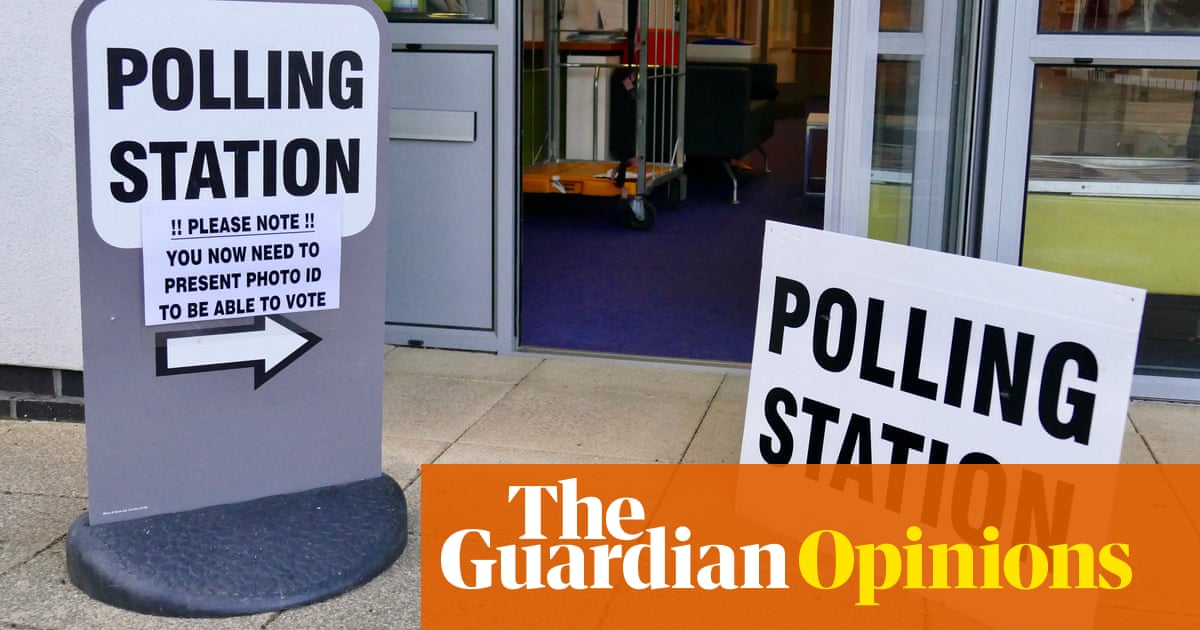
ast week millions of voters across Britain went to the ballot box in a bumper set of elections. But government plans to restrict access to the ballot box could mean that Thursday’s elections will have been among the last of their kind to be fair and free in the UK.
Proposals to introduce mandatory voter ID, as unveiled in today’s Queen’s speech, are a dangerous attack on our democratic rights that could lead to millions of legitimate voters being locked out of the polling station on election day. It is estimated that implementing the proposals could cost up to £20m per election, a hefty price tag for an unnecessary policy, and an expensive distraction from the real issues that affect our democracy and our country more widely.
On the face of it, requiring voters to show ID at polling stations may seem like a sensible policy. A necessary step, even, to ensure that those casting a vote have the right to do so. But while the government claims the potential for fraud is there, the evidence it exists is hard to find.
Widespread voter fraud at the ballot box would be easy to see. We’d find hundreds of people turning up to vote on polling day to find a ballot had already been cast in their name – yet few such claims exist.
Of the 595 alleged cases of electoral fraud investigated by the police in 2019 only 33 related to voter impersonation at a polling station – that is just 0.000057% of the over 58m votes cast in all the elections that took place that year.
Quite apart from the absence of any widespread voter impersonation, there are clear problems with forcing people to produce ID before they vote. According to official figures, 3.5 million people do not have access to photo ID in the UK and 11 million don’t have a passport or a driving licence. Unlike most countries where ID is required to vote, the UK has no free or low-cost ID option. In fact, in many of the countries used by the government as examples of successful voter-ID schemes, an ID is actually mandatory already, meaning everyone automatically has what they need to cast a ballot.
Many of the groups who are likely to be affected are already among society’s most marginalised. Earlier this year, three leading US civil rights groups criticised the UK government’s plans, highlighting how ID laws disproportionally affect people from poorer and marginalised communities.
It’s no wonder that opposition to voter ID has brought together a wide coalition, from homeless charities, groups representing elderly people and LGBT+ campaigners, to democracy organisations such as the Electoral Reform Society; each concerned that these proposals could shut out millions of legitimate voters from the ballot box.
Even senior conservatives are opposed to the proposals, with former Brexit secretary David Davis describing the plans as an “illiberal solution in pursuit of a nonexistent problem” and urging the government to drop its “pointless proposals”.
And Davis is right: this policy is a solution in search of a problem. Voting is safe and secure in the UK – the government has said so itself.
In March the Cabinet Office published a joint statement from the UK, Scottish and Welsh governments which declared “the United Kingdom is world-renowned for running elections of the highest standards in which voters can have full confidence.” A far cry from the Cabinet Office’s recent support for the proposals that they claim “combat the inexcusable potential for voter fraud in our current system.”
While the need for mandatory voter ID remains difficult to prove with genuine evidence, its potential pitfalls are far-reaching. Requiring photo ID introduces a new complexity to the voting process. Much like how the government’s coronavirus restrictions forced shopkeepers and hospitality staff to police mask-wearing and monitor group sizes, so too will these laws place polling staff’s judgment between voters and the ballot box.
These proposals would mean poll workers being forced to decide who gets a vote and who doesn’t. It could see many turning away legitimate voters from casting their ballots because their face shape has changed too much since their passport photo, or their new beard makes it hard to tell if it is in fact the same person as their driving licence shows.
It would place a huge burden on already strained electoral administrators to enforce these new laws and could result in lengthy delays and US-style lines outside polling stations as people are forced to queue for hours to cast their ballot – providing of course they have the right kind of ID.
Now it may still seem strange for a democracy organisation to oppose a policy such as this. But protecting voter access to the ballot box is vital in protecting our democracy too. More inclusive systems have better electoral integrity, and if the government wants to properly address the threats to our politics it must look beyond the ballot box.
The truth is that our democracy is under threat, but not from people wearing fancy dress or cunning disguises at the ballot box.
There remain dozens of loopholes in our electoral laws – loopholes that make our elections and voters themselves vulnerable to corporate donations, dark ads and disinformation, and the laws that govern our elections are woefully out of date. When it comes to electoral fraud, it is far more often campaigners and parties behind the breaches than the voters themselves.
It is disappointing that this Queen’s speech misses the opportunity to pledge real action on the glaring inadequacies of our electoral law, instead going after ordinary voters through their misguided mandatory voter ID plans.
Instead of suppressing the rights of ordinary voters, the government should focus on combating the real threats to our democratic system and bring forward proposals to ensure the integrity of our elections that we can all get behind.












